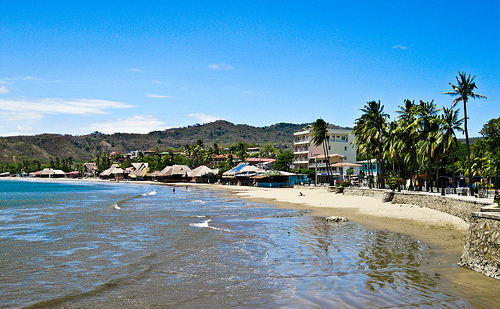
You can study all the collected data, analyze real estate statistics, crunch the cost-of-living numbers, study weather patterns and more, but nothing surpasses your gut instinct when it comes to choosing a place to live.
And believe us, your gut can change -- especially as you get older. If you are at all close to our ages, you surely already know this: your needs and interests expand right along with your waistline.
For instance, back in 1997, when we were first married and first started thinking about living overseas, we poured over every issue of International Living magazine and all of its e-postcards, as well as every other source available at the time. And of course, we relentlessly studied International Living's Global Retirement Index.
We compared and contrasted, planned and dreamed ... certain we would live in an exotic tropical destination, we wanted it to be relatively close to family and friends back home in the United States, who promised to visit often.
Cost of living was important, of course, as it still is today. But far more important to us today is convenient access to quality (and yes, affordable) medical care. Over a decade ago -- when we were in our mid-forties -- we didn't think much about that.
Instead, we were all about sunshine, warm weather, and beach bars where we could pass the hours watching the sun set over the surf while digging our toes in the sand and hoisting a cold one. This is how we spent our vacations, after all.
But as the old adage goes, life is what happens when you're busy making plans. And life isn't a constant vacation.

So except for half a year spent high on a hill above San Juan del Sur, Nicaragua, that came with a forever view of the Pacific Ocean, we never have lived on a beach. And we probably never will.
Why? For one thing, while those little beach bars can be perfectly charming for a day to two, they'd never keep us mentally engaged much longer than that. And no matter how tasty those "cold ones" are, can you imagine how much more our waistlines might expand if downing them were our only pastime?
And then there's the fact that one of us, especially, doesn't care much for sand that gets in every crevice. We both loathe mosquitoes. And neither of us can tolerate heat and humidity for long stretches of time.
A week of water fun in the sun is one thing -- and we still love our beach vacations, for sure, but we've grown to love the warm days and cool nights of equatorial mountain climates.
Long-term happiness for us means living in a city or town where there is plenty to keep us busy and where the climate is more suitable to our maturing lifestyle. (It helps our self-esteem, of course, that in the mountains we can eschew skimpy bathing togs for jeans and t-shirts that better hide those ever-growing waistlines.)
In hindsight, too, we've learned that once you get settled in, many of the things that you thought would matter greatly don't matter nearly as much as you thought they would. Sure, it's a great bonus that in Ecuador, where we live, our monthly utility bills -- water, gas, and electric -- rarely amount to much more than $25 total. And that's spring, summer, fall or winter. And we love it that for $2 each we can take the bus two hours south to Quito or buy a hearty, full meal... including beverage.
We've settled in with good medical service providers. We now have doctors, dentists, pharmacists, administrative assistants -- and one excellent health insurance advisor -- who know all about our physical status, issues and quirks.
And that brings me to the single issue that matters the most when choosing a place to put down roots: community.
Having lived in seven different communities in four different foreign countries, we have some expertise in this ... more than scenery or weather or cost of living or anything else, the game changer that most affects the success of your move overseas is the friendships you make.
Fortunately, it's easy to make friends when you're an expat. You can't help but stand out, after all. The locals will be curious about you and ask you all sorts of questions. (Show them photos and explain why you're there. A photo of your U.S. home buried under an avalanche of snow is a great ice-breaker... pun intended.)
And you'll have loads in common with your kindred fellow expats -- despite your apparent differences.
Would-be political foes back home become fast friends overseas. Same for those of different age groups or economic status. In an expat community, you're all in the same boat. You learn from each other, depend on one another and, more than anything, you tolerate uniqueness and respect one another for the decision you made to try out expat life.
So here's our best advice: Once you've weighed all the factors that are most important to you ... beach vs. mountains, city vs. village, cost of living, health care, and so on ... go one step further. Stand in the town plaza and check your gut. If you get a warm little tingle about the people who live there -- both local and expat -- you've found your spot.
Earlier on Huff/Post50:
